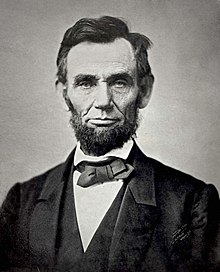I recently made a drastic career change. I had been working towards it for years, almost from the very beginning of my entering the workforce after college. Last month, it finally paid off. I was offered a spot in an academy class with a respected law enforcement agency. It was a no brainer at the time, I had been feeling unchallenged and overqualified for years.
However, lately I’ve been wondering if choice is a big thing. Are there right choices and wrong choices, or are they just varying degrees of good and not so good? We make small choices almost every second of the day without even realizing it and they have a small impact on the trajectory of our lives. But what about the big ones? Marriage, children, a new career…the list can go on. Is there a right and a wrong when it comes to these huge decisions?
When I received the offer letter and with it the wage that was somewhat lower than I was used to (albeit only for the 21 week academy), I had to pump the brakes and think about it. After chatting with a few very smart and influential people in my life (yes, mom you’re one of them) it still seemed like the only choice was to accept.
I was excited but realistically cautious about the life change I was about to endure. With the few minor job changes and promotions I have gone through I knew that this one would be a challenge. I was aware that it would be almost the exact opposite of the business environment from which I was coming. A paramilitary structure, classroom academics and physical fitness training would all be part of the new job. At least I would have the three month academy of regular hours and weekends off to transition, I thought out loud to my girlfriend. We would plan camping trips and weekend getaways to make sure we enjoyed the summer before the guarantee of a few unpredictable years.
Curveball: orientation was a few days before the official start date. Aside from being overloaded with information and expectations, we were informed that the academy would be a little different than expected. We would have a two week period of classroom academy followed by 9 weeks of on the job training with rotating shifts and mid-week days off. So much for the summer packed full of weekend activities.
I was disappointed, but what could I do? For the first time I felt that I was working towards a career. I was aware that changes would have to be made, but it still hurt that I had to disappoint the most important person in my life…already.
A few days into the academy, and I was right it was completely different and very challenging to adjust to, I was questioning my decision (almost by the minute). No weekends off for years? When would I see my girlfriend, my friends? I already had to cancel plans and sell concert tickets and Red Sox tickets for this summer. Would I be happier coasting through with an unsatisfying job to be able to enjoy the freedom of weekends spent with loved ones and friends? These thoughts were swirling, coupled with the nerves I had about performing the actual job. Doubts seemed to outweigh the benefits, to mask the ambition and drive that had taken me through countless application processes and landed me here.
In those tough moments it seemed like I may have made the wrong decision, I wasn’t happy as I had expected and I was going to have to make big sacrifices. How could that be the right choice? Well, I’ll tell you that now, only a few weeks later, I am feeling a little more optimistic. Yes, things are going to change and adjustments will have to be made but there wasn’t really a choice to be made after all. Thinking back and second guessing only makes the process more difficult. It’s time to put one foot in front of the other, not look over my shoulder, and work hard to make the most out of the opportunity given me.
Choices can be proven wrong or detrimental, but usually not right away. It will take time and reflection to know for sure if a good decision was made. One thing I have learned in life so far is that if a big decision seems like the easy way, then it’s probably not the best choice. Nobody makes all the right choices and the right choices may not seem too attractive at first glance. Life is made to build our character, especially when we are young. Choices may be right or wrong but they are both ultimately a part of our journey.
.jpg)

.JPG)
.JPG)
.JPG)






